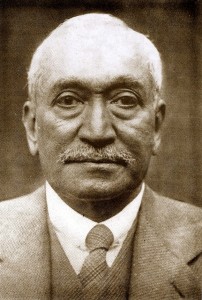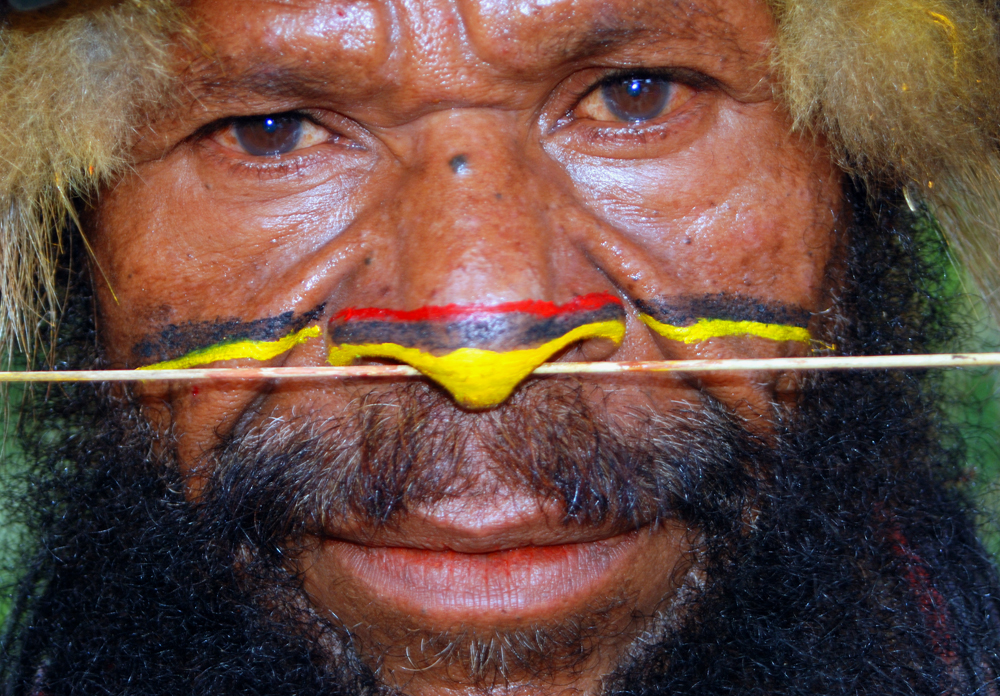New Year – New Hope
by
CuChullaine O’Reilly a.k.a. Asadullah Khan
As if we needed any reminders of what a murderous year 2009 has been, a few days ago another deluded fool attempted to destroy an airplane in flight. This time the destroyer was from Nigeria, not England, and he hid the explosives in his underpants, not his shoes. Nevertheless, both would-be assassins not only attempted to massacre their fellow man, they added to their sins by daring to cloak their crimes in the name of Islam.
Ironically, in a world full of instant news, one which rings out every few minutes with the words “Taliban” and “al-Qaeda,” it would serve mankind well to remember that there is a vast portion of the Muslim world which has gone largely unnoticed. Unlike the chilling Puritanism of some movements, which helped inspire and finance the forces of political poison currently disguised as religion which are at work today, the Indo-Islamic civilization created the most tolerant and pluralistic example of Islam ever known.
The most important example of this alternative vision of the oft-misunderstood religion was the great Mughal emperor, Akbar (1542-1605). The hallmark of his reign was the emphasis he placed upon Hindu-Muslim unity and the concept of individual religious tolerance. Because he was convinced that spiritual truth was not the monopoly of any particular religion, Akbar organized the first global congress of faiths, fostered the spirit of enquiry and allowed every man and community to develop in its own spiritual manner.
Faith has no caste, nor national origin, taught this powerful ruler who placed the love of God above the rituals of religion. When a theocracy of Sunni extremists condemned Akbar’s spirit of Sufi generosity, he transported the belligerent mullahs to Kandahar, and exchanged them for colts.
“You should not allow religious prejudice to influence your mind. The propagation of Islam will be better carried on with the faith of love and obligation than with the sword of oppression,” Akbar warned his fellow Muslims.
This flowering of Mughal religious tolerance reached its crescendo on April, 4th, 1934, when the city of Lahore witnessed the creation of the greatest literary treasure ever seen in the Indo-Islamic civilisation. That was the day upon which the scholar Abdullah Yusuf Ali released the first instalment of his English language translation of the Qur’an. For the princely sum of only one rupee, the first fifty pages of the revered work could be purchased. The resultant six-hundred plus pages were published as they were completed, in twenty-nine more sections over the next three years, thanks to a remarkable gathering of enthusiastic university students, calligraphers, printers and publishers, all of whom urged, and assisted, the Allama (most learned) Yusuf Ali to commit to paper the English language translation he had spent the majority of his life creating.
Born in India in 1872, Yusuf Ali was an extraordinary scholar, confident horseman and traveller par excellence. Thanks to his intellectual gifts, he was the first Indian to serve on Great Britain’s Indian Civil Service. A noted jurist, a devotee of Shakespeare, an expert on Alexander the Great, and a prolific author, Yusuf Ali was also an Islamic scholar of tremendous wisdom. Thanks to Yusuf Ali’s travels between England and India, he believed there was a vital need to translate the enduring message of the Qur’an into the English language, so as to offset the same forces of religious extremism which Akbar faced and which still threaten us today.

“Although I am earnestly and sincerely devoted to my own religion, I have always advocated the desirability of a better understanding between Christians and Muslims in all spheres of life. Such an understanding is likely to become a great guarantee of world peace and international understanding,” the humble scholar wrote.
Like the great Mughal, Akbar, whose religious tolerance had inspired him, Yusuf Ali believed in what he termed a “progressive Islam.” By the mid-twentieth century Muslim institutions and patterns of thinking had become moribund and obsolete. Not only should Muslims cope with the challenges of the day, he warned, they should use their faith to rise above the prejudices of race. Islam, he said, should be a way to transcend narrow political interests.
Yusuf Ali admonished the Muslims of his day, reminding them that the Prophet Muhammad (PBUH) had abolished any hereditary and privileged priesthood, while instituting the right of private judgment, personal responsibility, equality in brotherhood, removal of racial or caste barriers and the selection of rulers by democratic choice. It was these principles, Yusuf Ali said, which were the true basis of Islam.
After years of work, when Yusuf Ali’s English language Qur’an was released, it was acclaimed a masterpiece worldwide. This revered book, he said, was not the legacy of one nation, it was the heritage of mankind. “Each verse represents something immediately applicable,” he wrote, “and something eternal and independent of time and space.”
No sectarian views were propagated throughout the extensive commentary. On the contrary, Yusuf Ali’s emphasis was on the spiritual dimension of Islam and its message of a common humanity. This search for God within liberated the seeker from the restrictions of a narrowly orthodox version of Islam, encouraging the devotee instead to look beyond the letter of the law to its mystical essence.
Sadly, power is a jealous mistress who tolerates no rival. This is especially true of those who wield the sanctity of religious authority.
Though many other authors have attempted to emulate his efforts, Yusuf Ali’s English language translation of the Qur’an became the most widely respected, and trusted, version ever known. “In translating the Text I have aired no views of my own,” he wrote, then went on to hope that thanks to this version, “a new renaissance of Islam will sweep away cobwebs and let in the light of reason.”
Alas, the message of tolerance, as practised by Emperor Akbar and Allama Yusuf Ali, has been one of the unmarked victims of today’s climate of political hatred. In 1987 unnamed “editors” bowdlerized Yusuf Ali’s magnum opus, removing various appendices, revising the commentary, diluting its message of compassion and ignoring its apolitical tolerance.
“Nothing can be more damaging than the admission of rough and tumble politics into the serene atmosphere of religious peace and freedom,” Yusuf Ali wrote before his death in 1952. The result, he warned, would be the rise of leaders who promote dangerously simplistic creeds designed to promote a spirit of political vengeance and narrow self interest.
Sadly, as the bleak religious war between East and West goes on, Yusuf Ali’s prophecy has come true, with political hirelings in clergymen’s gowns from both sides mistaking the shell for the substance.
“A foundation of hatred or hostility can never support any edifice of national life and will be subject to sudden earthquakes when the forces of disorder are let loose,” Yusuf Ali predicted. Recent events demonstrate that he was right, as the venom of one side continues to provide the lifeblood of the other.
As the year 2009 and this decade come to a close, what a cruel mockery it is then to dispute, on the religious plane, national ambitions, tribal allegiances and the need for personal glory. The fruits of this tree are intolerance, rancour and uncompromising hostility, nestled among the leaves of barren and bigoted sectarianism.
A Sufi once remarked, “Everyone lives on the same Earth. One reads the Vedas, the second the Qur’an. One is called a pandit, the other a mullah. They style themselves separately, though they are pots of the same earth. Neither have found God and both live in futile disputes.”
Yusuf Ali, who spent his life attempting to reconcile East and West, counselled that counting beads or wearing a hermit’s gown is no sure sign of faith. Service to our brethren is the only worship that counts. Likewise it is folly to believe that war can end war.
Before his death, this remarkable man of two worlds wrote, “Many new streams of wisdom were poured through the crucibles of noble minds and thinking men of action.”
I like to think that Yusuf Ali, the scholar and traveller, would have supported Mikael Strandberg’s idealistic goal of travelling on camelback, from one distant ocean to another, so as to draw attention to what we all share in common.
I know I do.
CuChullaine O’Reilly, a.k.a. Asadullah Khan, along with his wife, the Swiss equestrian explorer, Sayeeda Ayesha Khan, will be re-publishing Yusuf Ali’s 1934 Qur’an, complete with its original translation and unedited commentary, in early 2010. The royalties will be donated to victims of suicide bombings in Pakistan.

The elephant in the room that this analysis does not address is the question of why Islamic inspired terror is occurring in the first place. Despite the fantasies of Dick Cheney it is true that direct US military engagement has fanned the flames, but it did not start it. No the roots lie in two main issues which date back more than 100 yrs;
1) a battle within religious Islam as to what is orthodoxy and true Islam with terror being a tool of a large fanatical minority who believe that Islam is the final word of God and that they must defeat his enemies both within and without.
2) the nature of most modern Islamic states which are dictatorships of varying type and degree in which corruption and state violence suppress the dreams of a huge underclass who want nothing more than a job and fair chance in life.
The ruling elites of the Islamic world know just how precarious their grip on power is and have cynically allied with the religious fanatics who tell the disaffected masses that the reason they are poor and downtrodden is that it is a punishment from God for not being pious enough and that the way to heaven is through martyrdom by killing infidels.
These issues will only be resolved by Muslims themselves and especially by moderate Muslims standing up to the fanatics. A good start would be an very public and unequivocal condemnation of the use of terror for political ends by western muslim leaders – something so far missing.